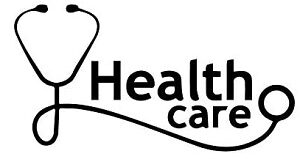More than three-dozen states have implemented Medical Card programs giving patients diagnosed with qualifying medical conditions access to plant-based medicines. The medicines are not offered to patients by way of standard prescriptions. Rather, Med Cards give patients the legal right to purchase, possess, and consume the medicines. It’s all part of a larger approach to offer alternatives to people who need them.
Anything That’s Not Western Medicine
Alternative medicine is an interesting thing. For starters, what constitutes alternative medicine? To the western practitioner, alternative medicine is any healthcare procedure, device, or therapy that doesn’t fall under the norms of western medicine. Alternative medicine includes things like:
- Herbal medicine.
- Plant-based medicine.
Prenatal Chiropractic Care used to be considered a form of alternative medicine. It has since been accepted as mainstream in most western healthcare systems. Nonetheless, it is an example of something once considered an alternative because it didn’t fit western medicine norms.
The Med Card Approach
Most of what we know as western medicine is pharmacologically based. On the other hand, alternative medicine may or may not have anything to do with pharmacology. Enter state Medical Card programs. You could call them hybrid programs. They are based on the same thinking that defines pharmacological medicine, yet the medicines they utilize are not pharmacologically based.
A patient visiting a KindlyMD clinic in Utah could very well be relying on the state’s Med Card program for access to plant-based medicines for treating chronic pain. Those medicines will not be available at the local chain pharmacy in downtown Salt Lake City. And in fact, only 15 specialized pharmacies in Utah are licensed to carry the plant-based products.
Those products are used in much the same way as prescription medications. However, prescription medications they are not. The KindlyMD patient may choose to use his medicine in the form of raw plant material. He might also choose to vape his medications, use a tincture placed under the tongue, consume edible products, or even use a topical lotion.
Why It All Matters
The fact that alternative medicine exists is not a coincidence. Moreover, the reason it exists explains why all this matters. Take chronic pain and PTSD. They are the two most common conditions treated under state Med Card programs. Millions of patients around the country rely on alternative medicine through their Med Cards to get relief they haven’t found in pharmacological therapies.
Chronic pain is a very personal thing. It can be both physically debilitating and stressful enough on the mind to contribute to depression and anxiety. The big problem with chronic pain is that it’s so difficult to treat with a one-size-fits-all therapy. Not everybody reacts to prescription painkillers the same way. Not everybody responds positively to physical therapy.
Our healthcare system is terribly inflexible when it comes to treating chronic illness. And for a lot of people, the traditional approach to treating pain just doesn’t work. They need alternatives. The same is true for PTSD.
PTSD can be as difficult to treat as chronic pain. Making matters worse is the fact that there is no black-and-white way for a doctor to measure the severity of a patient’s symptoms. Severity is rooted more in perception than a scientific measurement. And so like chronic pain, there isn’t a single treatment for every PTSD patient.
Giving Patients Choices
State Medical Card programs are all about giving patients more choices for treatment. Med Cards open the door to alternatives rooted in plant-based medicine. Is there tons of clinical evidence proving the efficacy of such therapies? Perhaps not. Yet that doesn’t mean they don’t work.


